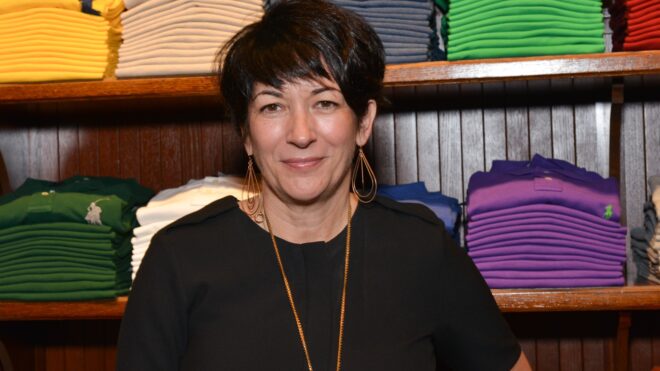
When we think of nannies, we might imagine Mary Poppins, Nanny McPhee, the women from Nanny 911, or even Scarlett Johansson or Brittany Murphy, for their roles in Nanny Diaries or Uptown Girls. All of them white women who are painted as fully fleshed-out human beings, worthy of respect and even admiration.
The story of the life of a white nanny is still being told. These days, we see these depictions on social media. Young, mostly white women, share day in-the-life videos of what it’s like to nanny for a family on TikTok: watching children, handing out snacks, taking fun little trips. It appears to be a life of ease. But that’s not the full story about the nannying industry. For many Black and brown women, nannying can come with disregard, degradation, and disrespect, and it's really not at all glamorous.
Black and brown women say their experiences are not reflected in the TikTok trend.
Several Black and Latina women spoke to Insider about their experiences working for rich — often white — families, and how it doesn’t mirror what they’ve seen from other nannies on TikTok.
Kimberly Ore, a 36-year-old Latina working in New Jersey, says her job entails actual work.
"It's not like I just come here, hang out, and do fun things with the kids and then leave,” she told Insider. "It's not like a babysitting job.” Instead, Ore’s duties include cleaning, laundry, transporting the children to various activities, cooking, educating, and more.
Ore said there is a difference working for white families and families of color.
Ore has been working as a nanny for 16 years, and notes that there is a drastic difference between working for white families and families of color. She says the first family she worked for, who were Hispanic and Black, treated her like she was an extension of the family.
She could offer suggestions on how the children were raised. She felt like an extension of the family. For other white families she’s worked for in the past, that’s not the case.
“I'm just someone who works for them,” Ore said. “They didn't really give me any freedom to really help raise their children. There's no personal connection or anything, and once I leave, the relationship with them is over.”
One Black woman said she quit after a week, feeling like she was in a Jordan Peele film.
More than just feeling like an employee, there are instances where nannies are made to feel like servants. A biracial woman, who spoke anonymously, said that during her brief one-week stint as a nanny in the Hamptons — an affluent resort area on New York's Long Island — she felt like she was in a Jordan Peele film.
"It was just indescribable how small I felt around these people and yet they were paying me a lot of money,” she explained. “And I still felt like they could literally just step on me. Even the kids were so aware of their power in the home."
She shared that her decision to leave stemmed from the fact that she was expected to clean up after adult members of the family.
“There was one point where [the children’s father] had been eating out on the balcony and he came in and just kinda tossed his garbage towards me and expected me to take care of it," she said. "He was just so comfortable with making these demands and I just assume it was because he had the experience of people in his life who are just gonna bend over and do whatever he asks."
When working for Black families, one woman said she was treated like a family member.
This type of racialized power discrepancy is why Candace Anderson, a Black 39-year-old former nanny in Los Angeles, only worked for other Black families.
"You could see a stark difference between the relationships of the other kids of other races with their nannies and the relationship I had with my kids when taking them on playdates or picking them up from school,” Anderson said. “They greeted me like I was a big cousin or auntie. It just felt like I was part of the family. I was like an extended family member. Definitely did not feel like an outsider. Definitely did not feel like 'the help.'"
Anderson said that nannies who experience children who mistreat them are only reenacting what they’ve seen their parents do. When she was in the industry, she also cooked and cleaned, a pattern she notices with other Black and brown women. Still, she says the strenuous nature of the job can be attributed to the race and class of the family.
The mistreatment Black women experience can be traced back to slavery.
The idea of seeing Black women in servitude to white families is an idea that originated in slavery when Black women were responsible for taking care of a white slave owner’s family and home, often at the expense of her own children.
When slavery was abolished, Black women, who had few options at the time, continued the work for meager wages and the same time of mistreatment that existed during slavery. That's certainly far from the glamorous, romanticized view of nannies we often see on TikTok today.
“There is an expectation embedded into the fabric of this nation that Black women's place in society is to serve," said Tracey Walters, an associate professor of Literature and Department Chair of Africana Studies at Stony Brook University, and the author of Not Your Mother's Mammy: The Black Domestic Worker in Transatlantic Women's Media.
Immigrants often experience discrimination as domestic workers as well.
For immigrants, the power dynamic may be financial or one in which a nanny’s citizenship or ability to stay in this country can be compromised. Often nannying is the first available opportunity. It comes with housing, gainful employment, and often doesn’t require government paperwork.
"If you are an immigrant, you're going to be reticent about speaking up for yourself in matters of exploitation because this job is everything to you – unless you have something else lined up,” Walters said.
“You're at the mercy of this employer. Meanwhile, for white women, especially if they're not immigrants, they understand or they are going to exercise their right to challenge and push back when they believe they're being exploited. They're going to demand a particular wage."
Sexual harassment and assault can also be a dangerous reality for domestic workers.
That exploitation can come in the form of low wages, unfair labor, and even sexual harassment or assault, as many domestic workers have reported, according to Vox.
“Hunger will make you put up with a lot of things,” Etelbina Hauser, a 56-year-old mother of seven, told the outlet in 2018. “You realize that you have to find a way to survive, even with your dignity crushed.”
Bosses of domestic workers fall into the category of “small firm exemption” and are not subject to the penalties of gender discrimination. Increasingly, organizations supporting nannies of color and immigrants and other domestic workers are springing up, including the International Nanny Association on Facebook.
But with centuries of tradition to unlearn, there’s still a lot of work to be done before there’s equality between women of color and white women in the industry.




